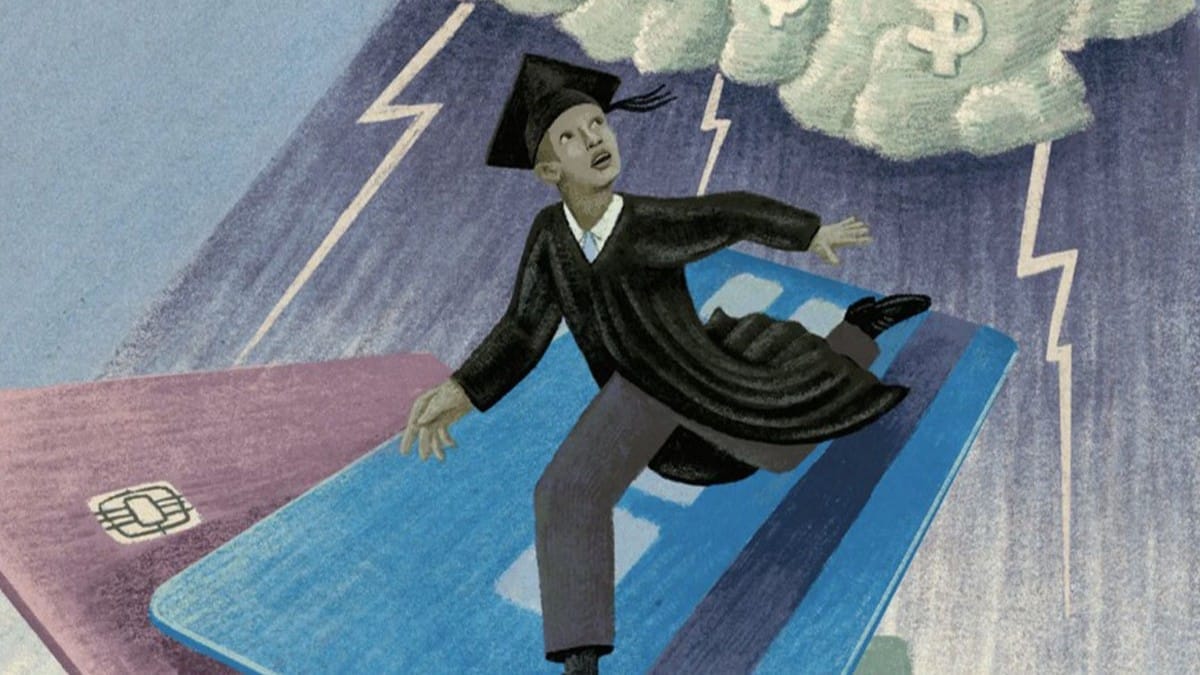So you say you’ve got pretty decent credit.
You pay your car loan on time 95% of the time. You meet your minimum monthly payments on your credit cards, even though you’re close to maxing out a few.
And for that personal loan, you got while in between jobs? You’re still working away at it—five years later.
You say, “Hey I may not have an excellent credit score, but pretty good is good enough, right?”
…Well, that depends on how you feel after running a few numbers: Going from a fair credit score (mid to upper 600s) to a good one (low 700s) to an excellent rating (mid 700s or higher) could save you thousands—even tens of thousands—over a lifetime in the form of more favorable interest rates and financing terms.
You save money in many areas of your life by having excellent credit, and the higher your score goes, the more you’re going to save.”
Consider this example: According to calculations by EditMyCredit.Net, a 35-year-old woman living in Colorado with a credit score in the mid-600s will pay $269,033 in interest over a lifetime between her mortgage, auto loans, and credit cards.
If her credit score was in the upper 600s/low 700s, that figure would go down to $229,085. With a score above 740, it drops to $208,491.
Translation: Having an excellent score potentially saves her $60,542 compared to having a fair one—and that’s not chump change.
Does that make you want to stop settling for “pretty decent”? If you’re still not convinced, read on to see how different areas of your financial life could get a boost, all thanks to a stellar credit score.
Awesome Score Advantage #1: Prime Mortgage Rates
Your mortgage is probably where you’ll reap the most savings with a high credit score because it’s likely to be the biggest purchase you’ll ever pay interest on—and the longest amount of time you’ll spend paying something off.
Early June data from MyFico.com found that the average consumer with an excellent credit score—in this case, 760 or higher—was eligible for a mortgage rate of about 3.74%. But those with a score in the next tier down—700 to 759—qualified for an interest rate of about 3.96%.
That less than a quarter of a percent difference may not seem like a big deal, but on a $200,000 mortgage over 30 years, it works out to an additional $9,130 in interest charges.
“That’s real money every month that you’re not able to save,” says John Ulzheimer, a credit scoring pro who’s worked for both FICO, and Equifax.
Look at it this way: It may only be a few dollars a month added to your mortgage, but the difference can become significant—in some cases enough to pay for a year or more of college, to take a really nice vacation, or to boost your retirement fund.
Consumers with excellent credit scores were able to get an auto loan at a 3% interest rate. But those in the good category saw that figure jump to 4.38%.
Awesome Score Advantage #2: Preferred Auto LoansWhile it’s easier to qualify for a good deal on a car loan than a mortgage, having a high score can still net you some substantial savings.
Consumers with excellent credit were able to get an auto loan at a 3.25% interest rate in early June, according to MyFico.com. But those in the next tier down saw that figure jump to 4.61%.
With the average person borrowing over $26,000 for a new car, that difference adds up.
Over a five-year loan, the higher rate on that $26,000 equates to an extra $958 in interest!
Awesome Score Advantage #2: Better Credit Card Rates/Rewards
When it comes to your plastic, those with excellent credit are able to qualify for cards with an average annual percentage rate (APR) of 13%, while those with good credit got a 17% APR.
The savings gets a little fuzzier with credit cards because, a lot of times, if you have good credit, you’re less likely to be carrying much of a balance.
However, if you have, say, a $3,000 balance on your card and are chipping away at it by paying $100 a month, at 13%, it would take 37 months to pay that balance off, and you’d shell out $648 in interest. At 17%, it would take 40 months to pay off, with $934 in interest payments.
And if you’re receiving offers in the mail giving you a 0% introductory APR for the first 12 to 18 months, plus no fee on balance transfers, it’s likely because you have an excellent credit score. Someone who has poor or even average credit is not going to qualify. Those offers are for people who have elite credit.
Other possible perks reserved for elite credit consumers: airline miles just for signing up, points for every dollar spent, and cash back on purchases—all of which can save you a bunch of money.
Awesome Score Advantage #3: Reduced Private Student Loan Rates
Thinking about finally going back to school for that MBA, but have concerns about the private loans you may have to take out to help cover tuition?
Your credit score can have a massive impact on student loan rates because the way lenders look at pricing for their products is based on credit quality,” says Stephen Dash, founder, and CEO of Credible.com, a marketplace that connects lenders and students looking to refinance educational loans.
For instance, if you’ve got a score that’s closer to 850, you’re more likely to fall into the lowest credit-risk bucket. On our platform that rate can be as low as 1.93%,” he says. If you’re around a 620, you could be closer to 6%–7%.
And considering that the median borrower of a graduate degree takes out more than $57,000, those few percentage points stand to make a big difference over the life of a loan, that could be anywhere from 10 to 30 years long.
Awesome Score Advantage #4: Better Small Business Financing
If you’ve got an entrepreneurial drive, a stellar credit score can help get your coffee shop, dogie day spa, or marketing consultancy dreams off the ground because until you build a solid business credit history, lenders will use your consumer score to determine your credit risk.
When you’re starting a business, virtually any loan you get will involve a personal credit check and a personal guarantee. It’s not until your business is well established—two years old, at a minimum, with significant revenues—that you can generally start to negotiate away personal guarantees and credit checks.
And even if you have some business credit history, many community lenders may still weigh your consumer credit score more heavily—often to the point of excluding your business credit score, according to a January 2014 report from the Small Business Association.
You may not realize it, but another area of your financial life affected by your score is the premium you pay for home or auto insurance.
Another perk of a strong credit score? It could make you eligible for more favorable business lines of credit.
If you have average credit, you’ll have greater difficulty getting approved for a business loan, or you’ll likely receive a high-interest rate. So you’ll be paying interest, instead of putting that money into your business. You might qualify for credit cards, but your limit might be small and the rate may be high.
Having a high business credit limit may be particularly important as you start out because it gives you the flexibility to handle temporary cash-flow issues with a lesser chance of negatively impacting your personal credit score.
Awesome Score Advantage #5: Lower Insurance Premiums
You may not realize it, but another area of your financial life affected by your credit score is the premium you pay on your home and auto insurance.
While it’s not the exact same type of score that’s used to determine whether you qualify for a credit card, insurance lenders do factor in information found on your credit report.
The higher your credit score, the more likely you are to land a lower premium. Based on 2013 data, InsuranceQuotes.com found that drivers with median credit-based insurance scores—considered a fair score—paid 24% more for auto insurance than those with excellent credit. And those with poor credit paid a whopping 91% more.
The company found similar results for home insurance in a 2014 study: Those with a fair score pay 29% more for their policies, while homeowners with a poor credit score could pay a whopping 91% more.
Perhaps most important? A higher score improves the chances you’ll actually get insurance in the first place.
You can be denied coverage altogether if you have a low score,” However if you have a solid credit score, it can push you from a denial to an approval.”
——————————————————————
Want To Know How Much You Could Be Saving!?
Have your credit analysed by a credit restoration professional in order to determine how much money you could save with a 100 point jump.
People who started our program 60 days ago have an average of 100 points higher credit score than when they started.
Visit https://editmycredit.net and GET A FREE CREDIT ANALYSIS TODAY OR YOU CAN CALL US NOW!
An investment in knowledge pays the best interest. – Benjamin Franklin



